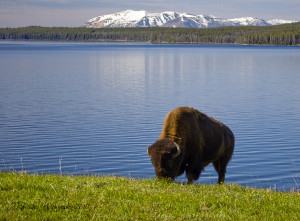We have much more to do and your continued support is needed now more than ever.
Don’t Let National Parks Become A Casualty of Budget Battles
Since the Budget Control Act was passed in August, 2011—and we all had to start pretending we know what “sequester” means—NWF and our friends in the conservation community have known that sequestration will be devastating for America’s wildlife and treasured public lands.

Last month, we finally got a peek at what exactly sequestration might mean for America’s habitats and ecosystems—and it’s not pretty.
A setback for conservation and the economy
According to a January 25 National Park Service memo obtained by the Coalition of National Park Service Retirees, sequestration will have a disastrous impact on parks and all those who enjoy them.
This is not mere speculation: in the memo, National Park Service director Jon Jarvis explicitly said that sequestration will force them to delay permanent and seasonal hiring—perhaps indefinitely, if the budget situation is not resolved—and limit access to cherished national treasures:
“We expect that a cut of this magnitude, intensified by the lateness of the implementation, will result in reductions to visitor services, hours of operation, shortening of seasons and possibly the closing of areas during periods when there is insufficient staff to ensure the protection of visitors, employees, resources and government assets.”
And there’s more: according to additional information obtained by the Coalition of National Park Service Retirees last week, sequestration will directly impact more than 1 million visitors to 12 of the nation’s leading national parks. In a letter to the Senate Appropriations Committee, Secretary of the Interior Ken Salazar warned that, in addition to the steps above, the Department of the Interior will have to close 128 wildlife refuges and discontinue visitor services at all 561 national wildlife refuges.
If the Department of the Interior is forced to enact these cuts, it will not only undermine our rich national conservation legacy and restrict the activities of hunters, anglers, hikers, boaters, and all outdoor enthusiasts, it will have a serious economic impact. America’s 37 million sportsmen spent $90 billion in 2011 alone. And 140 million Americans spend $646 billion a year on outdoor recreation, an industry that employs 6.1 million Americans.
Sportsmen agree: don’t cut conservation funding
In NWF’s 2012 national poll of sportsmen, 84% of respondents said that the federal government should make it a priority to conserve fish and wildlife habitat and manage public lands for fishing, hunting, and other outdoor recreation.
Don’t let Congress shirk their responsibility to our public lands. Indiscriminate cuts to discretionary programs that devastate our public lands and wildlife are not the solution.
![]() Act now: click here to tell Congress not to let the budget crisis devastate wildlife.
Act now: click here to tell Congress not to let the budget crisis devastate wildlife.





















